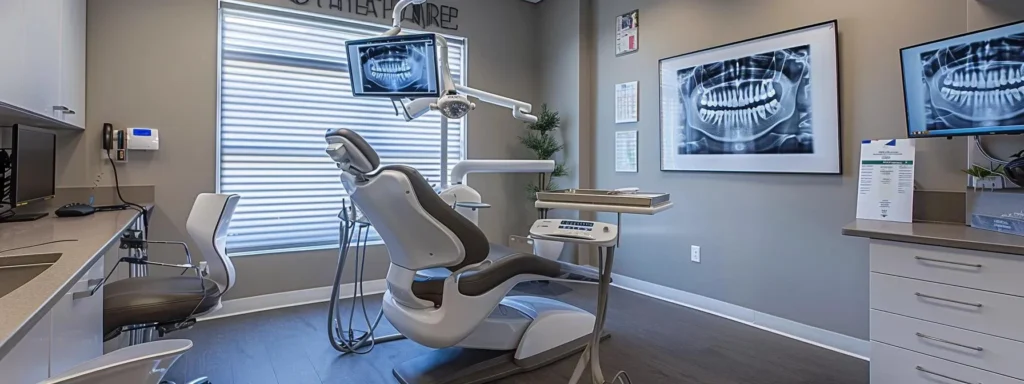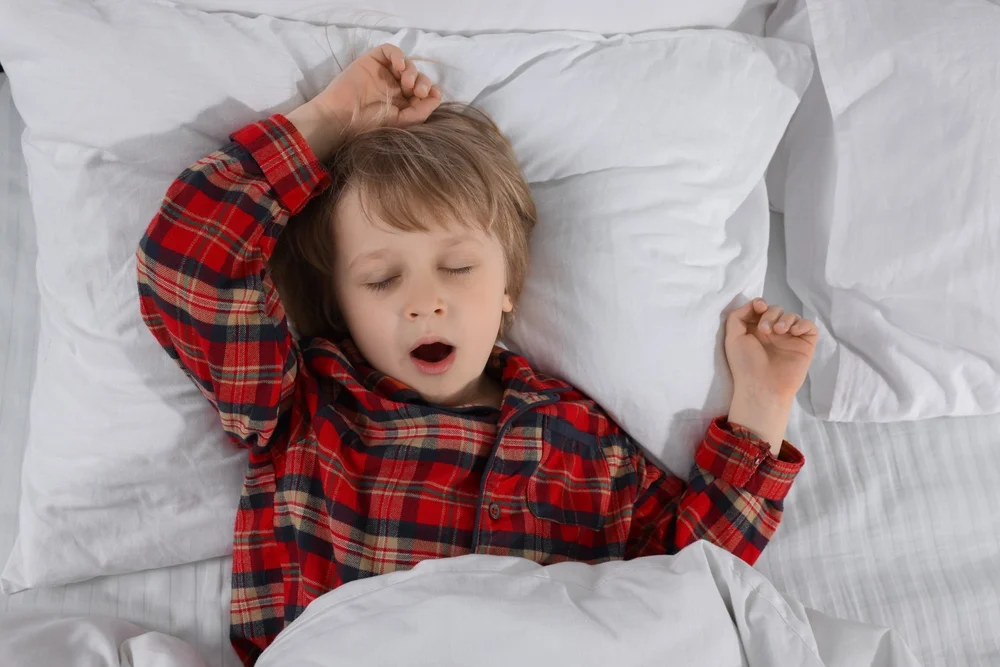Pediatric sleep studies provide overnight monitoring in controlled lab settings. Professional staff use painless sensors to track breathing, brain activity, and sleep patterns. These studies diagnose sleep disorders and guide treatment decisions.
Has your doctor recommended a sleep study for your child? Dr. Scott Kennedy at Dynamic Family Dentistry in Clifton, TX helps families understand what to expect. After completing his residency at Waco’s Family Health Clinic, he’s guided countless Texas families through the process.
Sleep studies might sound intimidating. But understanding what happens removes the fear. The overnight observation takes place in a comfortable, safe environment designed for children.
Trained professionals monitor your child all night. They collect detailed information about breathing patterns, sleep stages, and oxygen levels. This data helps doctors diagnose sleep apnea accurately.
Why Sleep Studies Matter
Sleep studies provide information no other test can capture. Doctors need to see what happens during sleep to understand breathing problems.
The study measures multiple body functions simultaneously. Brain waves show sleep stages. Chest movement reveals breathing effort. Oxygen sensors track blood levels. This creates a complete picture of sleep quality.
Early diagnosis prevents serious health complications. Untreated sleep apnea affects heart health, growth, and brain development.
Accurate diagnosis guides treatment. Mild cases might respond to oral appliances. Severe cases could require surgery or breathing devices.
Understanding the Safe Process
Sleep studies use only external monitoring. Nothing enters your child’s body. All sensors attach to the skin using gentle adhesive or soft elastic bands.
The sensors are small and lightweight. Most children adjust quickly and fall asleep normally.
Equipment used:
- Scalp electrodes for brain waves
- Chest belts for breathing effort
- Finger probe for blood oxygen
- Nasal cannula for airflow
- Leg sensors for movement
- Video camera for observation
Professional staff monitor screens continuously. A technologist stays awake all night watching over your child.
If oxygen drops dangerously or breathing stops too long, staff respond immediately.
Dr. Kennedy’s membership in the American Dental Association and Texas Dental Association keeps him connected to current diagnostic standards.
Common Misconceptions
Many parents worry sleep studies will traumatize children. Most kids adapt quickly and sleep reasonably well.
Some families fear the sensors will hurt. All monitoring is external and painless. Children describe sensors as feeling like stickers.
| Common Fear | Reality |
| “It will hurt my child” | All monitoring is painless and external |
| “My child won’t sleep” | Most children fall asleep normally |
| “The lab is scary” | Rooms are child friendly with comfortable beds |
| “We’ll be alone” | Parents stay and staff monitor constantly |
| “Equipment will scare” | Staff explain everything gradually |
Parents sometimes delay studies hoping children will outgrow problems. This waiting allows serious complications to develop.
Understanding risks of untreated sleep apnea motivates families to pursue testing. Poor sleep affects academic performance, emotional regulation, and physical health.
Creating Familiar Environment
Sleep labs feel less clinical and more comfortable. Many decorate rooms with child friendly themes. Beds are regular mattresses, not hospital beds.
Children can bring comfort items from home. Favorite blankets, stuffed animals, and pillows help kids feel secure.
Parents stay overnight in the room. Your presence provides emotional support. Most labs include a bed or recliner for parents.
Items to bring:
- Favorite blanket or stuffed animal
- Regular pajamas (two piece works best)
- Toiletries for bedtime routine
- Books for bedtime stories
- Regular sleep routine items
Maintaining normal bedtime routines helps children sleep naturally. You can read stories, sing songs, or follow whatever routine happens at home.
The goal is capturing typical sleep behavior. The more naturally your child sleeps, the more accurate the data.
What Dynamic Family Dentistry Provides
Dr. Kennedy’s practice emphasizes clear communication throughout the process. Families receive detailed explanations about what to expect.
The practice coordinates closely with sleep labs for smooth referrals. Dr. Kennedy explains why the study is necessary based on symptoms observed during dental screenings.
Educational materials supplement verbal explanations. Written guides, videos, and diagrams show exactly what happens.
Follow up support continues after the study. Dr. Kennedy reviews results and explains what the data means.
Understanding Results
Sleep study reports contain detailed data about your child’s night. Doctors analyze breathing patterns, oxygen levels, sleep stages, and arousal frequency.
Results determine appropriate treatment. Mild sleep apnea might improve with oral appliances Dr. Kennedy can provide. Moderate to severe cases could require CPAP therapy or surgery.
Some studies show no sleep apnea despite concerning symptoms. This doesn’t mean nothing is wrong. Other sleep disorders might be present.
Dr. Kennedy’s training in sleep apnea screening helps interpret results with dental findings. His Academy of General Dentistry involvement ensures he stays current on treatment standards.
Building Care Team
Sleep disorder treatment often requires multiple specialists. Your pediatrician monitors overall health. Sleep specialists interpret studies and manage medical treatments. Dentists address oral factors.
ENT specialists evaluate tonsils, adenoids, and nasal structures. Enlarged tissues sometimes need removal.
Orthodontists correct jaw development issues. Narrow palates can be expanded to create more airway space.
Specialists involved:
- Pediatrician for health coordination
- Sleep specialist for study interpretation
- Dentist for oral appliance therapy
- ENT for surgical evaluation
- Orthodontist for jaw corrections
Dynamic Family Dentistry connects families to appropriate specialists. Dr. Kennedy’s network throughout Texas helps ensure coordinated care.

Preparing Your Child
Honest, age appropriate explanations help children approach studies confidently. Explain that doctors need to watch them sleep to understand their breathing.
Let children ask questions and express concerns. Address worries directly. Acknowledge that sleeping somewhere new feels strange but reassure them you’ll be there.
Practice wearing sensors at home if the lab provides samples. Letting kids explore equipment reduces fear.
Tour the sleep lab before the study if possible. Seeing the room during daytime helps it feel less intimidating.
Frame the study as helping doctors fix the breathing problem.
During the Study Night
Arrival happens in the evening, usually a few hours before normal bedtime. This allows time for equipment setup.
The technologist explains each sensor before placing it. They work slowly, allowing your child to adjust.
Once sensors are placed, children can relax until sleepy. They can read, watch shows, or play quiet games.
Lights go out when your child feels ready. The room stays dim so cameras can monitor safely.
Throughout the night, the technologist watches monitors in a separate room. They don’t disturb sleeping children unless necessary.
Morning comes at your child’s natural wake time. Staff remove sensors and you leave shortly after.
After the Study
Most children return to normal activities immediately. There’s no recovery period needed.
Results take several days to process. Sleep specialists analyze all collected data.
Follow up appointments discuss findings and recommendations. Dr. Kennedy coordinates with other providers.
Some children need additional testing if results are unclear.
Preventing Future Problems
Regular dental checkups catch early warning signs. Dr. Kennedy screens for oral structures that contribute to breathing difficulties.
Teaching proper breathing habits helps children develop healthy patterns. Nasal breathing, correct tongue position, and good posture support airway health.
Maintaining healthy weight protects airways. Consistent sleep schedules promote quality rest.
Moving Forward
Pediatric sleep studies provide crucial diagnostic information in safe settings. Dr. Kennedy helps Clifton families understand the process and prepare children for successful studies.
The overnight study might feel daunting but proves valuable for diagnosis. Professional monitoring ensures safety while collecting data that guides treatment.
Work closely with Dynamic Family Dentistry throughout the diagnostic process. Dr. Kennedy coordinates care, explains results, and implements treatments based on findings.
If your child shows signs of sleep disordered breathing, don’t delay evaluation. Contact Dynamic Family Dentistry in Clifton, TX to discuss screening options. Dr. Kennedy will assess whether a sleep study is appropriate and guide your family through each step. Remember that every child’s situation is unique and requires professional evaluation to determine the best approach for their specific needs.
Dr. Scott Kennedy and the team at Dynamic Family Dentistry are here to help you achieve the bright, confident smile you’ve always wanted. Book a consultation today to learn more about dental veneers in Clifton, TX, and take the first step toward a radiant smile!
Dynamic Family Dentistry
302 S. Avenue Q, Clifton, Texas Phone: (254) 675-3518
Frequently Asked Questions
Is a pediatric sleep study safe for my child?
Yes, pediatric sleep studies are completely safe and non-invasive. All monitoring uses external sensors that attach to the skin without causing pain. Trained technologists watch your child continuously throughout the night. They respond immediately if problems occur. The controlled lab environment provides safety measures that protect your child. Thousands of children undergo these studies safely every year.
What should my child bring to a sleep study?
Bring comfort items that help your child feel secure. Favorite blankets, stuffed animals, and pillows make the room feel familiar. Pack regular pajamas in two pieces for easier sensor placement. Include toiletries for normal bedtime routines. Bring books or quiet activities for wind down time. One parent stays overnight, so bring items for your own comfort too.
How will the sleep study impact my child’s daily routine?
The study causes minimal disruption to normal routines. It occurs overnight during regular sleep hours. Most children return to school or regular activities the next day. There’s no recovery period needed. Some kids feel tired if they didn’t sleep well, but this resolves quickly. The benefits of accurate diagnosis far outweigh the minor inconvenience.
The information on this page is provided to help you understand general dental care and the preventive services we offer. It’s not a substitute for professional diagnosis or individualized treatment. Every patient’s needs are different, and your dentist will evaluate your oral health before recommending any specific care or procedure. (For personalized guidance, please schedule an appointment with a licensed dental professional.)


